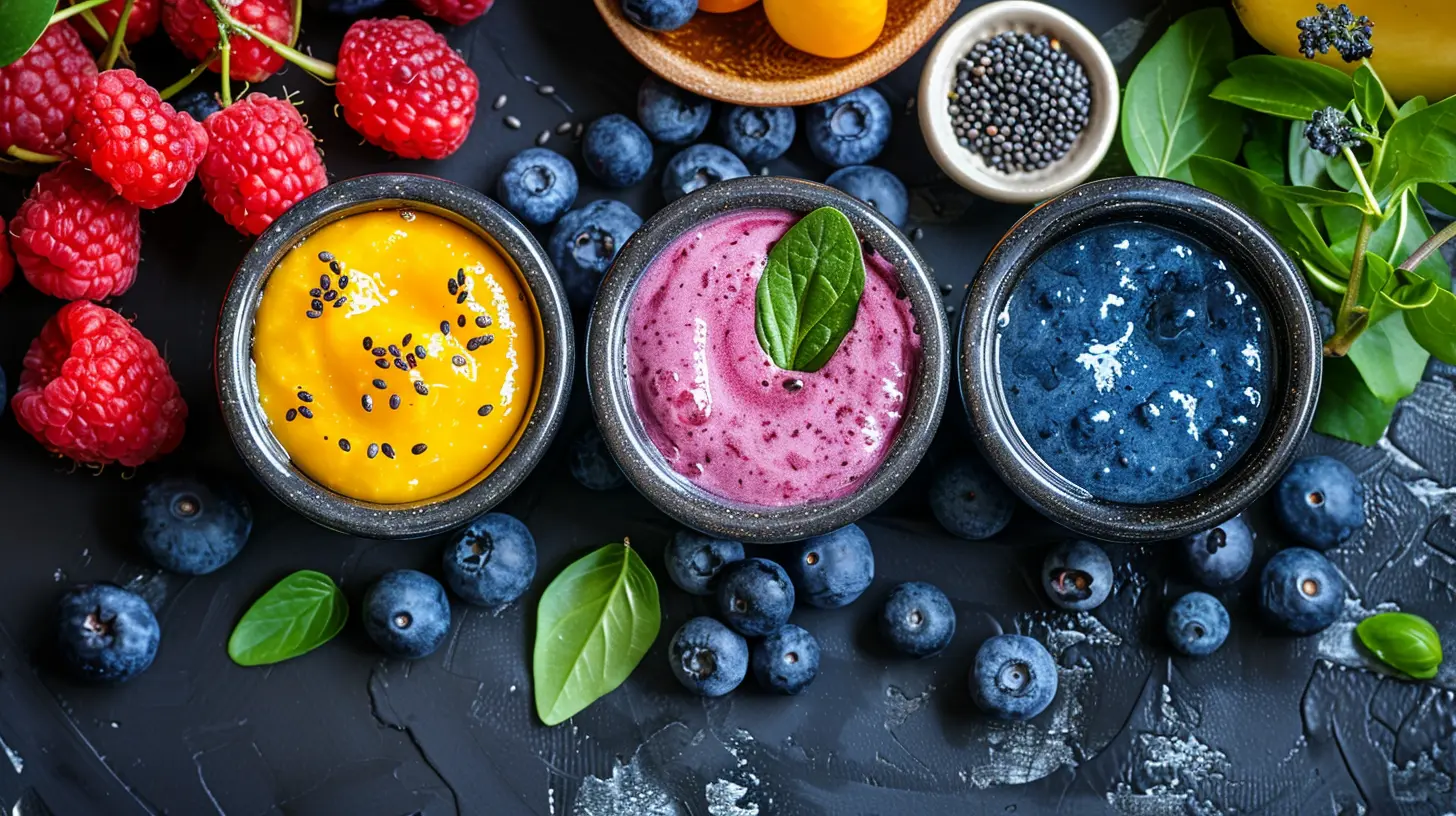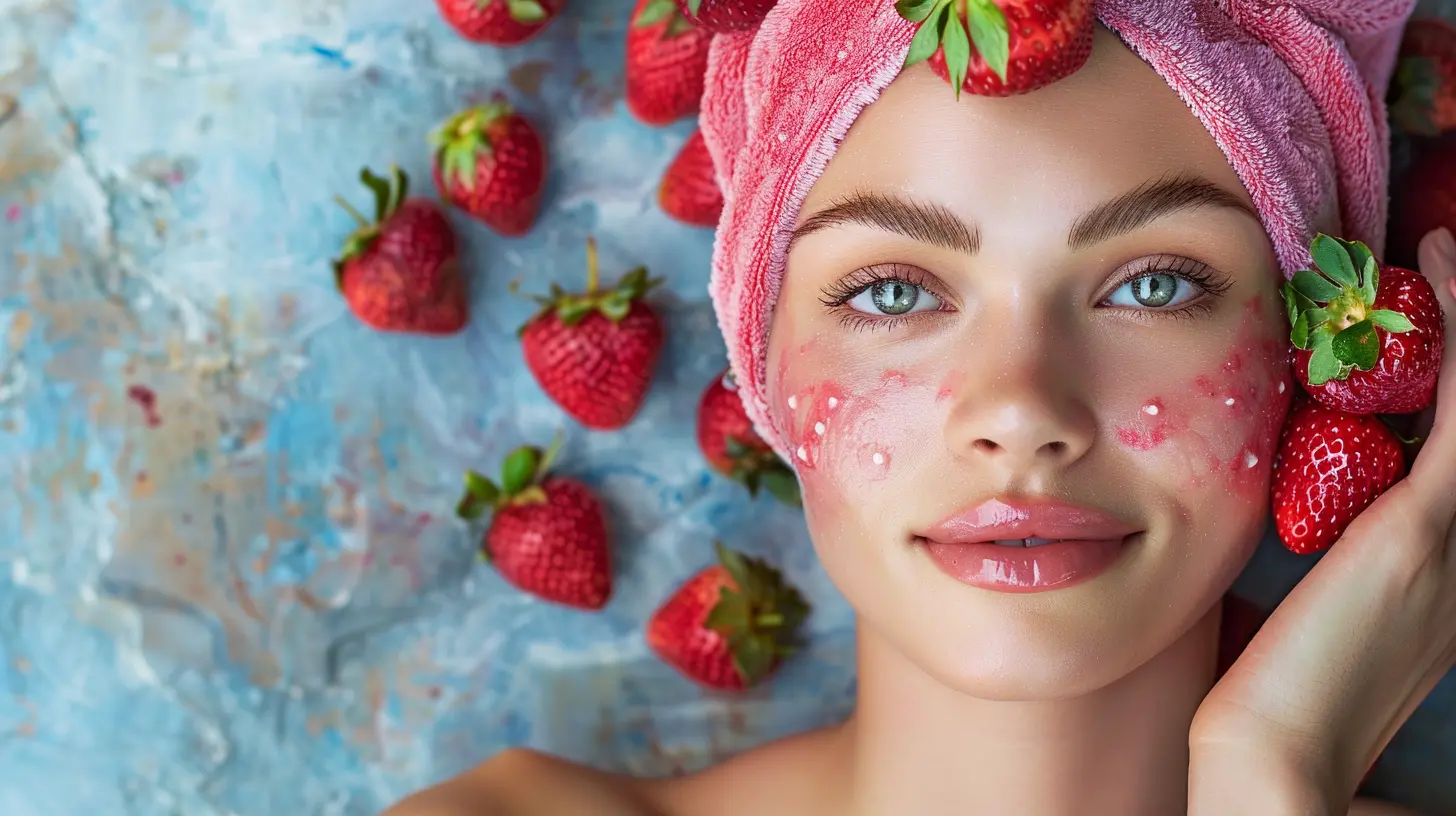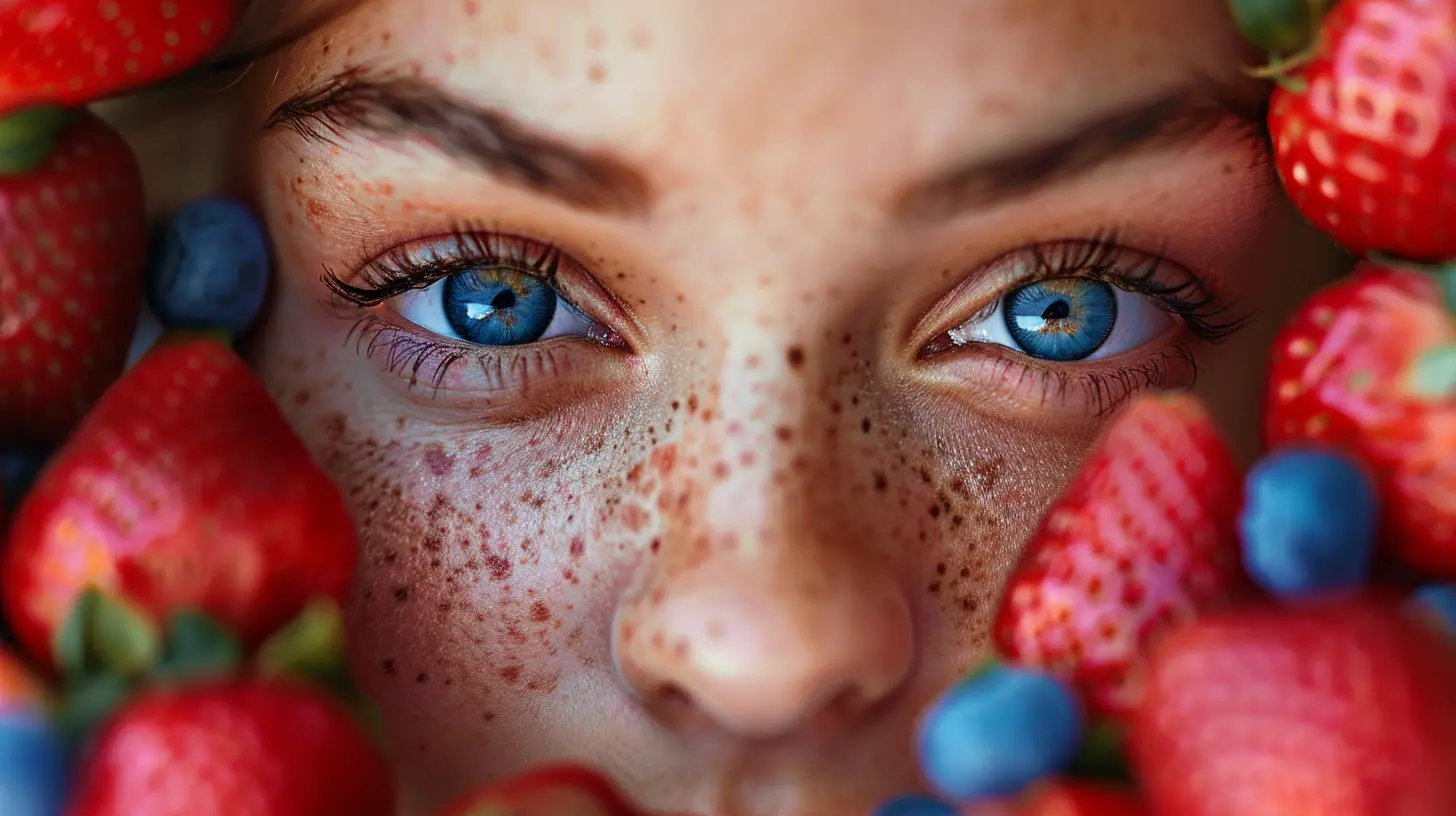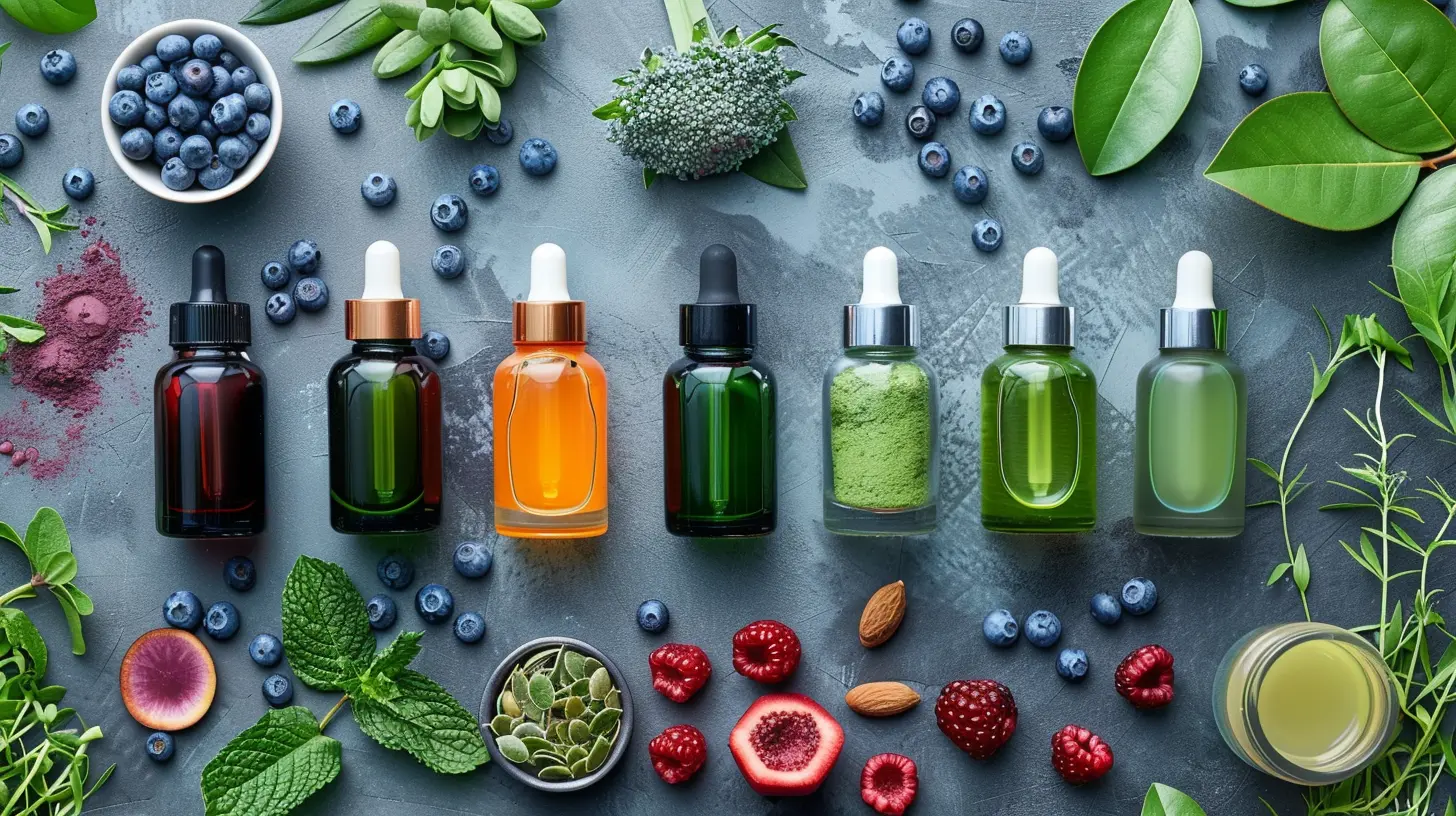The Power of Antioxidants in Skincare
22 June 2025
Let’s be honest—skincare can feel like decoding a foreign language sometimes. Hyaluronic acid, retinol, ceramides… it’s a lot to take in. But today, we’re going to zero in on something that deserves the spotlight: antioxidants.
These tiny molecules pack a major punch when it comes to protecting and rejuvenating your skin. You’ve probably heard the word “antioxidants” tossed around in your favorite beauty blogs or skincare products, but what are they really doing for your face? And why should you care?
Stick with me—we’re diving into the power of antioxidants in skincare, minus the science textbook headache.
What Are Antioxidants Anyway?
Think of antioxidants like your skin’s bodyguards. Every day, your skin is under attack from environmental stressors—pollution, UV rays, smoke, even harsh weather. These aggressors produce unstable molecules called free radicals.Free radicals are basically the villains of your skin story. They steal electrons from healthy skin cells, which leads to oxidative stress. That damage can speed up aging, cause dark spots, make your skin dull, and mess with its natural barrier.
Here’s where antioxidants swoop in capes flying. They neutralize those free radicals by offering up an extra electron, calming them down before they wreak havoc. In short? Antioxidants help maintain your skin’s health and glow.
The Science Behind the Glow
Okay, hold tight—we’ll keep this part simple.When free radicals attack, they break down collagen and elastin, two proteins that keep your skin firm and bouncy. Collagen is like scaffolding that holds your face up. Elastin is what lets it snap back like a rubber band.
As we age, production of these proteins naturally slows down. But when free radicals enter the chat? It's like hitting the fast-forward button on aging.
Antioxidants not only stop that damage, but some can also stimulate collagen production, reduce inflammation, and help repair existing damage.
Now that’s skincare with superpowers.
Common Types of Antioxidants Found in Skincare
Let’s meet the A-list antioxidants. These are the ingredients you’ll want to look for on product labels.1. Vitamin C (Ascorbic Acid)
This one is probably the most famous—and for good reason. Vitamin C is a brightening powerhouse. It fades dark spots, boosts collagen production, and gives your skin a radiant, even tone.Hot tip: Vitamin C works best in the morning under sunscreen to protect from UV damage.
2. Vitamin E (Tocopherol)
Vitamin E is deeply moisturizing and calming. It pairs beautifully with Vitamin C, enhancing its effectiveness. Together, they’re like Batman and Robin for your skin.3. Niacinamide (Vitamin B3)
This is a multitasker. It reduces inflammation, evens skin tone, protects against sun damage, and strengthens the skin barrier.Plus, it's super gentle—great for all skin types, even sensitive ones.
4. Retinol (Vitamin A)
Retinol is the anti-aging queen. It promotes cell turnover, fades wrinkles, and helps clear up acne. It also has antioxidant properties that keep skin protected at the cellular level.Just be cautious—with great power comes great responsibility. Retinol can be irritating, so start slow and always use SPF.
5. Coenzyme Q10 (CoQ10)
This antioxidant is naturally present in your body, but levels drop as you age. Applying CoQ10 topically helps energize skin cells and minimize fine lines.Think of it as a Red Bull for your skin cells.
6. Resveratrol
Found in red wine and grapes, this antioxidant has powerful anti-inflammatory and anti-aging effects. Great for nighttime serums and creams.7. Green Tea Extract
Loaded with polyphenols, green tea soothes irritated skin and fights redness. It's like a cup of tea—for your face.
The Real Skin Benefits of Antioxidants
Let’s break down the real-life, no-fluff benefits of using antioxidant-rich skincare.✔️ Fights Premature Aging
Fine lines, wrinkles, sagging skin? Antioxidants slow it all down by protecting your collagen from breaking down.✔️ Evens Skin Tone & Reduces Pigmentation
If you’re dealing with dark spots, sun damage, or melasma, antioxidants like Vitamin C and niacinamide can help fade them over time.✔️ Boosts Skin Brightness
Dull skin is often a sign of stress and damage. Antioxidants rejuvenate your skin, giving it a healthy, radiant glow.✔️ Strengthens Skin Barrier
Some antioxidants help reinforce your skin’s natural barrier, making it better at locking in moisture and fighting off invaders.✔️ Calms Inflammation & Redness
Antioxidants have anti-inflammatory properties that soothe irritated skin—ideal for people with conditions like acne, rosacea, or eczema.✔️ Protects Against Environmental Damage
Every day your skin faces UV rays and pollutants. Think of antioxidants as armor that shields your face from daily damage.How to Incorporate Antioxidants Into Your Skincare Routine
Here’s the million-dollar question: How do you actually use these magical ingredients in your routine? Let’s break it down.🧴 Use a Vitamin C Serum in the Morning
After cleansing, apply a Vitamin C serum before your moisturizer and sunscreen. It’ll brighten your skin and protect you from daily stressors.🌜 Go for Retinol at Night
Use retinol-based products in your nighttime routine. It works best while your skin is in repair mode overnight.💧 Layer Light to Heavy
Apply antioxidant-rich products from thinnest to thickest—typically serum → moisturizer → sunscreen.☕ Don’t Skip Sunscreen
Antioxidants and SPF are the ultimate power couple. One fights damage, the other prevents it. You need both.✅ Be Consistent
Antioxidants aren’t a one-and-done deal. You’ll see the best results when you use them regularly over time.Watch Out for These Common Mistakes
Even the best ingredients won’t help if you’re using them wrong. Here are a few things to keep in mind:- Storage Matters: Some antioxidants, like Vitamin C, are unstable and can degrade with light and air. Store them in dark, cool places and always screw lids on tight.
- Don’t Mix Everything: Not all antioxidants play well together. For example, using retinol with Vitamin C at the same time might irritate skin. Do your research or consult a dermatologist.
- Start Slow: Especially with more potent antioxidants like retinol. Ease into it so your skin can build tolerance.
Natural Sources of Antioxidants for DIY Skincare Lovers
Prefer the natural route or love making your own masks and scrubs? You’re in luck. Many foods are loaded with antioxidants.Here are a few goodies you can use:
- Honey & Green Tea Mask – Honey is antibacterial; green tea is anti-inflammatory.
- Turmeric & Yogurt Paste – Turmeric reduces redness, while yogurt soothes and gently exfoliates.
- Avocado Mash – Full of Vitamin E and healthy fats for intense hydration.
- Blueberry Face Mask – These tiny berries are antioxidant bombs. Blend with honey for a nourishing mask.
Just always do a patch test first!
Are Antioxidants Enough on Their Own?
Short answer: Not really.Antioxidants are essential, but they work best as part of a larger skincare strategy. That means cleansing properly, moisturizing daily, and (yes, again) wearing SPF every single day.
Also, don’t underestimate your diet! Fuel your skin from within by eating antioxidant-rich foods like berries, nuts, leafy greens, and dark chocolate (thank us later!).
So, Are Antioxidants the Holy Grail of Skincare?
Well, they’re pretty close.Antioxidants offer protection, repair, glow, and anti-aging benefits—all in one package. Whether you’re new to skincare or already a product junkie, adding antioxidants to your routine is one of the smartest moves you can make.
They’re versatile, they work for most skin types, and they’re backed by both science and glowing reviews. So go ahead, give your skin the superhero treatment it deserves.
Because let’s face it—your skin has been through a lot. A little antioxidant TLC can go a long way.
all images in this post were generated using AI tools
Category:
Skin CareAuthor:

Angelo McGillivray
Discussion
rate this article
2 comments
Lauren Wolf
Antioxidants are a game-changer in skincare! They combat free radicals, preventing premature aging and promoting a healthy complexion. Incorporating products rich in vitamins C and E, green tea extract, and other powerful antioxidants can enhance your skin's resilience. Invest in your skin's future with these potent ingredients!
October 29, 2025 at 4:41 AM

Angelo McGillivray
Thank you for your insightful comment! I completely agree—antioxidants are essential for maintaining youthful skin and enhancing overall skin health.
Joy Meyers
In nature’s embrace, antioxidants weave, Crafting a shield that helps us believe. With radiant glow, they mend and restore, Unlocking beauty, forever to adore. Embrace their power, let your skin soar.
June 23, 2025 at 3:46 PM

Angelo McGillivray
Thank you for beautifully capturing the essence of antioxidants! Their transformative power truly enhances our skin's health and radiance.


